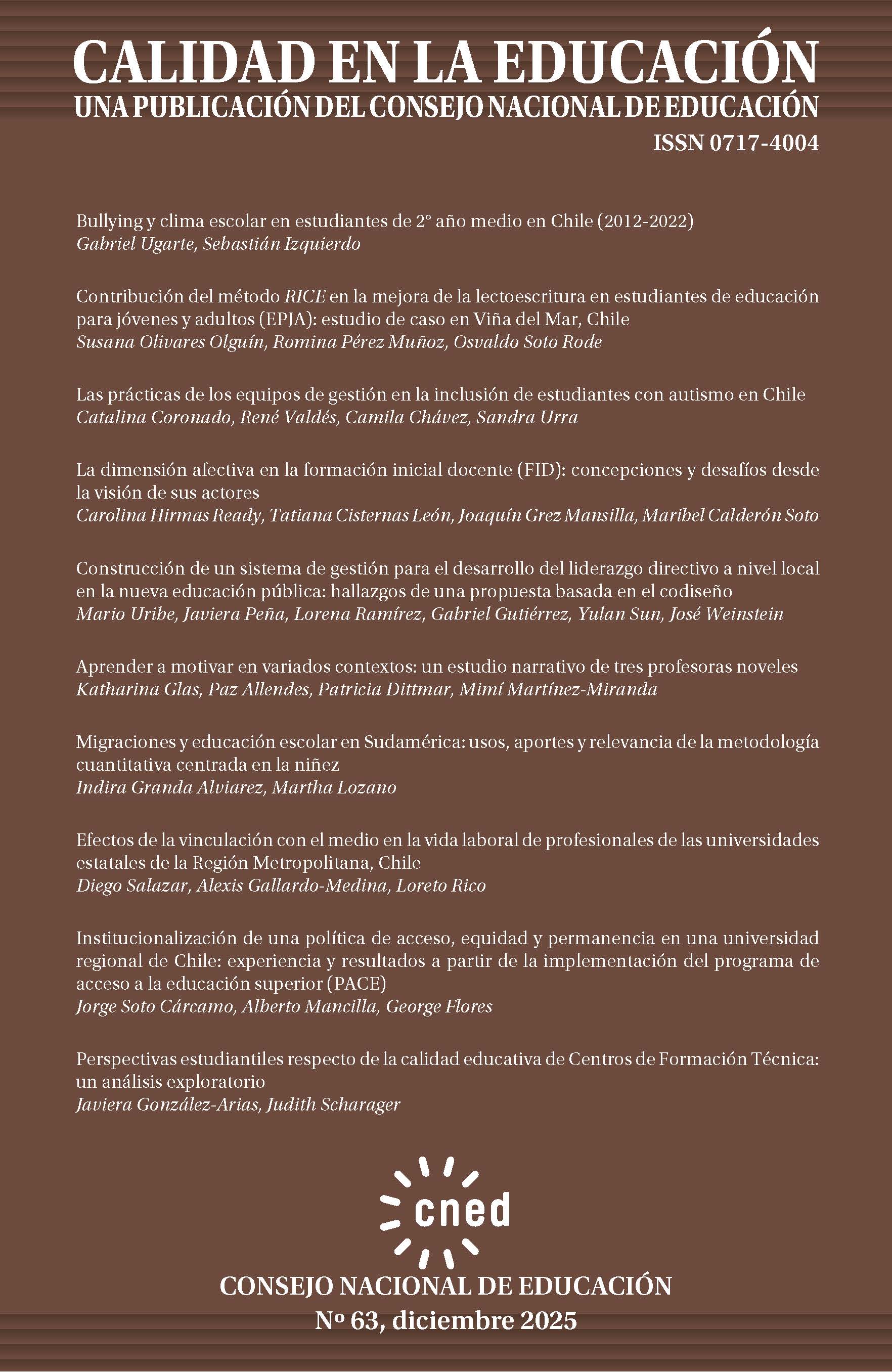Improving Literacy in Adult and Youth Education Students with the Rice Method: A Case Study in Viña del Mar, Chile
DOI:
https://doi.org/10.31619/caledu.n63.1583Keywords:
Adult Education, Educational Equity, Meaningful Learning, Reading Comprehension, WritingAbstract
Reading comprehension levels are a cause for concern in Chile. According to the Reading Test administered by the Education Quality Agency (Agencia de Calidad de la Educación), the average score in this sector reaches only 230 out of 600 points, negatively affecting students’ academic performance and future opportunities. To address this challenge, the contribution of a method designed to improve reading comprehension and writing in Adult and Youth Education (EPJA) students attending an Adult Education Center in Viña del Mar, Chile, was assessed. This mixed-methods study included a pretest to evaluate initial skills, application of the method, a posttest, and a focus group. Quantitative results showed that 99% of students improved by at least 1.2 points on a 1.0-7.0 scale with a 60% passing threshold. Qualitative findings indicated that participants highlighted the development of meaningful learning, which strengthened their academic performance. These findings underscore the relevance of the method as an effective tool to enhance 21st-century skills in young people and adults who are resuming their education. These results are expected to contribute to the development of pedagogical strategies in similar contexts, promoting comprehensive educational trajectories.
Downloads
Published
Issue
Section
License

This work is licensed under a Creative Commons Attribution 4.0 International License.
Authors retain their Copyright and only transfer a part of these to the journal, accepting the following conditions:
Authors keep their rights as authors and guarantee the right to the journal for the first publication of their work, which is simultaneously subject to the Creative Commons Attribution license allowing third parties to share the study accrediting the author and first publication in this journal.
Authors may adopt other non-exclusive license agreements for distribution of the version of the published work (e.g. inclusion in an institutional thematic file or publication in a monographic volume) accrediting initial publication in this journal.
Authors are allowed and recommended to share their work over the Internet (e.g. in institutional telematic files or their website) before and during the submission process, which may lead to interesting exchanges and increased citation of the published work. (See The effect of open access).

